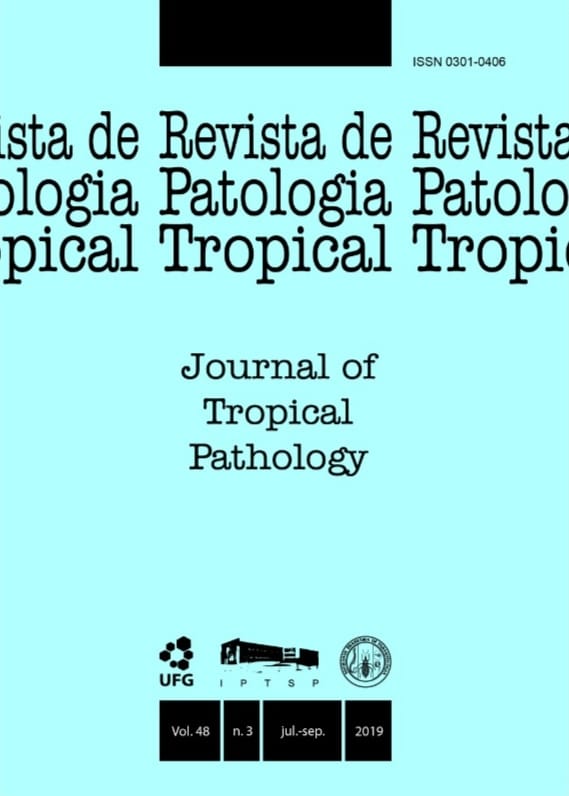FATAL ANAPHYLAXIS TO Jaguajir rochae (BORELLI, 1910) (SCORPIONES, BUTHIDAE) IN BRAZIL: A CASE REPORT
DOI:
https://doi.org/10.5216/rpt.v48i3.60349Abstract
A 44-year-old healthy farmer, was stung by a scorpion on his right hand while preparing soil for planting in the Caatinga area (a large area in the north-east of Brazil characterized by semiarid scrub forest), in the Catarina Municipality countryside, Ceará State, Brazil. According to the reports of carers and family members, the patient initially reported mild pain at the site of the sting, but within a few minutes he developed malaise, pruritus in the body and throat, edema in the nostrils, and a dry mouth which led to looking for water to drink. It rapidly
evolved into sphincter, urinary and fecal release, salivation and a convulsive episode with loss of the senses. He was dead on arrival at Catarina Municipality Hospital emergency department.
The necroscopic report indicated suffocation due to glottal edema and acute lung edema as the “cause of death”. The animal which caused the accident was under a rock that the patient was manipulating at the time of the incident, and has been identified by experts as Jaguajir rochae (Borelli, 1910) scorpion species, formerly synonymized Rhopalurus rochae. This is the first report of a fatality due to an allergic reaction to the venom of this species. This leads to the possibility that deaths caused by stings from other scorpion species may be due to anaphylaxis, whose symptoms in some situations may be confused with severe envenomation.
KEY WORDS: Jaguajir rochae; scorpionism; anaphylaxis; allergy
Downloads
Downloads
Published
How to Cite
Issue
Section
License
The manuscript submission must be accompanied by a letter signed by all authors stating the full name and email address, confirming that the material has not been published or is under consideration for publication elsewhere, and agreeing to transfer copyright in all media and formats for Journal of Tropical Pathology. The authors will not be paid for published articles. They are solely responsible for the content of those articles, even if the Editor holds the right to adjust them to the norms of the journal.
The reviewers will not be paid for the peer review process.

